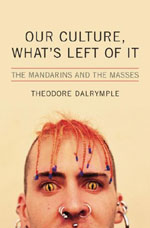
Thomas Nagel is an American philosopher. He is the University Professor of Philosophy and Law Emeritus at New York University, where he has taught since 1980, retiring in 2016. His main areas of philosophical interest are legal philosophy, political philosophy, and ethics.

John Henry McDowell is a South African philosopher, formerly a fellow of University College, Oxford, and now university professor at the University of Pittsburgh. Although he has written on metaphysics, epistemology, ancient philosophy, nature, and meta-ethics, McDowell's most influential work has been in the philosophy of mind and philosophy of language. McDowell was one of three recipients of the 2010 Andrew W. Mellon Foundation's Distinguished Achievement Award, and is a Fellow of both the American Academy of Arts & Sciences and the British Academy.
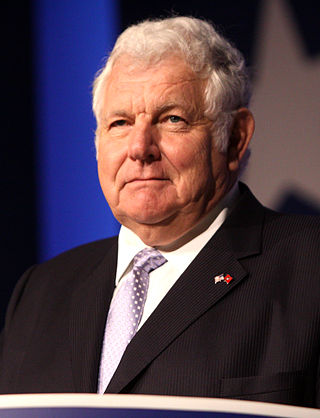
William John Bennett is an American conservative politician and political commentator who served as secretary of education from 1985 to 1988 under President Ronald Reagan. He also held the post of director of the Office of National Drug Control Policy under George H. W. Bush.

John Leslie Mackie was an Australian philosopher. He made significant contributions to ethics, the philosophy of religion, metaphysics, and the philosophy of language.
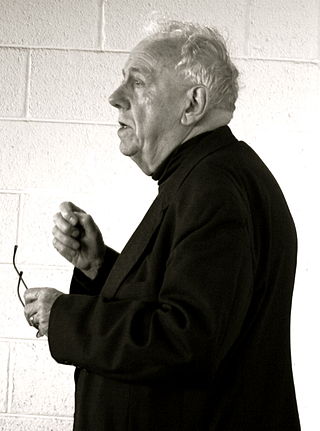
Alasdair Chalmers MacIntyre is a Scottish-American philosopher who has contributed to moral and political philosophy as well as history of philosophy and theology. MacIntyre's After Virtue (1981) is one of the most important works of Anglophone moral and political philosophy in the 20th century. He is senior research fellow at the Centre for Contemporary Aristotelian Studies in Ethics and Politics (CASEP) at London Metropolitan University, emeritus Professor of Philosophy at the University of Notre Dame, and permanent senior distinguished research fellow at the Notre Dame Center for Ethics and Culture. During his lengthy academic career, he also taught at Brandeis University, Duke University, Vanderbilt University, and Boston University.

Anthony Malcolm Daniels, also known by the pen name Theodore Dalrymple, is a conservative English cultural critic, prison physician and psychiatrist. He worked in a number of Sub-Saharan African countries as well as in the East End of London. Before his retirement in 2005, he worked in City Hospital, Birmingham and Winson Green Prison in inner-city Birmingham, England.

Tom Regan was an American philosopher who specialized in animal rights theory. He was professor emeritus of philosophy at North Carolina State University, where he had taught from 1967 until his retirement in 2001.
Sentimentality originally indicated the reliance on feelings as a guide to truth, but in current usage the term commonly connotes a reliance on shallow, uncomplicated emotions at the expense of reason.
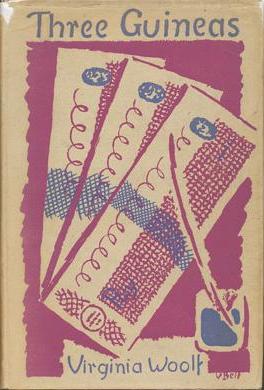
Three Guineas is a book-length essay by Virginia Woolf, published in June 1938.

A Vindication of the Rights of Men, in a Letter to the Right Honourable Edmund Burke; Occasioned by His Reflections on the Revolution in France (1790) is a political pamphlet, written by the 18th-century British writer and women's rights advocate Mary Wollstonecraft, which attacks aristocracy and advocates republicanism. Wollstonecraft's was the first response in a pamphlet war sparked by the publication of Edmund Burke's Reflections on the Revolution in France (1790), a defense of constitutional monarchy, aristocracy, and the Church of England.

Londonistan: How Britain is Creating a Terror State Within is a 2006 best-selling book by the British journalist Melanie Phillips about the spread of Islamism in the United Kingdom over the previous twenty years. The book was published in London by Encounter Books.
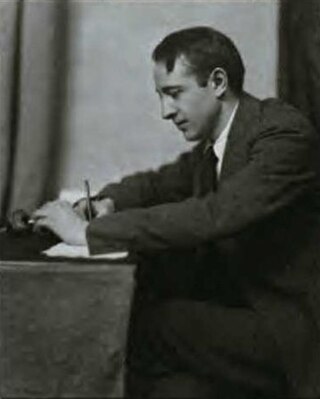
Floyd James Dell was an American newspaper and magazine editor, literary critic, novelist, playwright, and poet. Dell has been called "one of the most flamboyant, versatile and influential American Men of Letters of the first third of the 20th Century." In Chicago, he was editor of the nationally syndicated Friday Literary Review. As editor and critic, Dell's influence is seen in the work of many major American writers from the first half of the 20th century. A lifelong poet, he was also a best-selling author, as well as a playwright whose hit Broadway comedy, Little Accident (1928), was made into a Hollywood movie.

A Brief History of Crime is the third book by author and journalist Peter Hitchens. Originally published in 2003, it was reissued in 2004 under the new title The Abolition of Liberty. The book was described in 2012 by The American Conservative magazine as "a must-read for anyone on either side of the Atlantic".

The Rage Against God is the fifth book by Peter Hitchens, first published in 2010. The book describes Hitchens's journey from atheism, far-left politics, and bohemianism to Christianity and conservatism, detailing the influences on him that led to his conversion. The book is partly intended as a response to God Is Not Great, a book written by his brother Christopher Hitchens in 2007.
The science of morality may refer to various forms of ethical naturalism grounding morality in rational, empirical consideration of the natural world. It is sometimes framed as using the scientific approach to determine what is right and wrong, in contrast to the widespread belief that "science has nothing to say on the subject of human values".

Spoilt Rotten: The Toxic Cult of Sentimentality is a non-fiction book by the British writer and retired doctor and psychiatrist Theodore Dalrymple, originally published in 2010. Polemical in nature, the book contends that sentimentality has become culturally entrenched in British society, with harmful consequences. The author uses a range of cultural, educational, political, media and literary issues—including falling standards in education, UK aid policies for African development, the death of Diana, Princess of Wales, the disappearance of Madeleine McCann, and the work and life of Sylvia Plath—to illustrate what he sees as the danger of abandoning logic in favour of sentimentality, which he describes as "the progenitor, the godparent, the midwife of brutality". Much of Dalrymple's analysis is underpinned by his experience of working with criminals and the mentally ill.
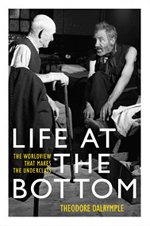
Life at the Bottom: The Worldview That Makes the Underclass is a collection of essays written by British writer, doctor and psychiatrist Theodore Dalrymple and published in book form by Ivan R. Dee in 2001. In 1994, the Manhattan Institute started publishing the contents of these essays in the City Journal magazine. They are about personal responsibility, the mentality of society as a whole and the troubles of the underclass. Dalrymple had problems in finding a British publisher to help him turn his individual essays into a collection, so he eventually turned to American companies for publication.
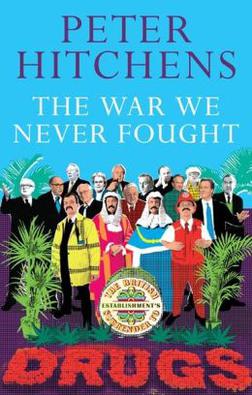
The War We Never Fought: The British Establishment's Surrender to Drugs is the sixth book by the British author and Mail on Sunday columnist Peter Hitchens, first published in 2012.
The Liberal Imagination: Essays on Literature and Society (1950) is a collection of sixteen essays by American literary critic Lionel Trilling, published by Viking in 1950. The book was edited by Pascal Covici, who had worked with Trilling when he edited and introduced Viking's Portable Matthew Arnold in 1949. With the exception of the preface, which was written specifically for the publication of the book, all the essays included in The Liberal Imagination were individually published in the decade before the book's publication in literary and critical journals, such as The Partisan Review, The Kenyon Review, The Nation, and The American Quarterly. The essays represent Trilling's written work and critical thoughts of the 1940s.
Moral enhancement, also called moral bioenhancement, is the use of biomedical technology to morally improve individuals. MBE is a growing topic in neuroethics, a field developing the ethics of neuroscience as well as the neuroscience of ethics. After Thomas Douglas introduced the concept of MBE in 2008, its merits have been widely debated in academic bioethics literature. Since then, Ingmar Persson and Julian Savulescu have been among the most vocal MBE supporters. Much of the debate over MBE has focused on Persson and Savulescu's 2012 book in support of it, Unfit for the Future? The Need for Moral Enhancement.
